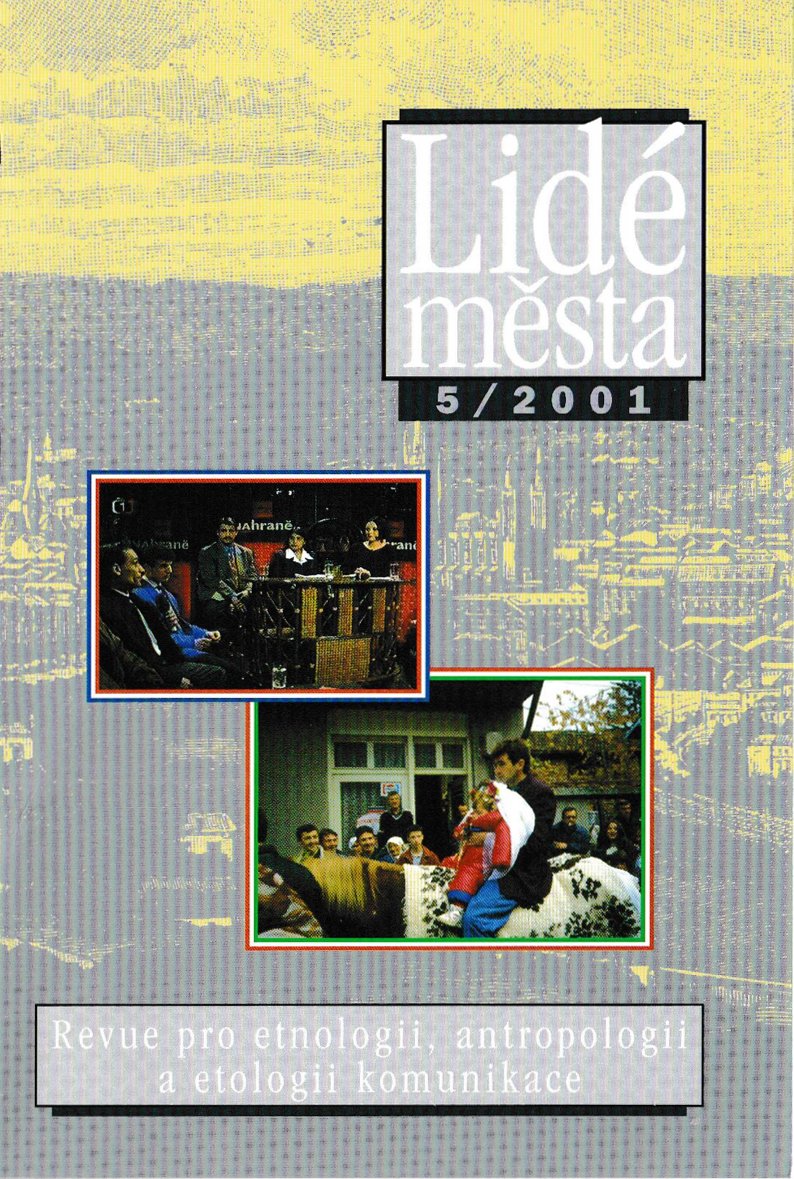Vznik a zánik symbolických hranic
Národní identita polských Tatarů
DOI:
https://doi.org/10.14712/12128112.4101Abstrakt
In lhe present-day world in which many people are expected to define their ethnic identity, Polish Tatars constitute a group which had been formed on the basis of a different religious and ethnic nature, bul which has managed to find its place in a world divided into nations. Admittedly, the group reproduces its ethnic and religious borders (Polish Tatars are Moslems), bul it also derives its ethnic identity from a strong feeling of making part of the Polish nation. Unlike minorities inhabiting Poland such as Ukrainians and Lithuanians it is also significantly identified itself with the Polish state. It cannot be said that their relationship with the majority Polish society includes any conflict. Polish Tatars have created symbolical borders, which on the one hand separate them from the Polish majority, but on the other they make it possible for them to remain part of the Polish national culture. They have achieved this through the combination and integration of three elements of their own identity, namely religion (lslam), ethnic group (Tatar) and position in the country (in Poland). ln this paper, based on an empirical survey, the writer examines ethnic identity of Polish Tatars. She focuses on its creation, structure, content, transformation as well as mechanisms, which allow it to preserve its distinctive nature. She assumes that since identity results from social classification of the world, it contains the relations of members of a certain group to other social entities. The Tatar group has always delineated its symbolical bounds in a way allowing its members to determine in which way they resemble each other and in which they differ, thus defining their 'sameness' as well as 'distinctiveness'. According to the respondents, Tatars are and feel to be Poles because they were born in Poland and live in it. For them, Poland is not only a country they inhabit, but, first and foremost, their homeland which they selected as a place of residence several centuries ago. Their strong attachment to Poland is based on the persona! experience as well as conviction about their share in the Polish culture and history. They have served and defended Poland and they have fought for it. They do not and cannot deny their religious distinctiveness. But they do want to question the stereotype that a Pole must be a Catholic. They do so by presenting statistical data, their own example and the factors keeping together the Polish state. On the basis of their replies one can paint the picture of a nation shared by the whole minority. Tatars look at a nation through a spatial and civic approach as a political, legal and cultural community with its own historical area. When the respondents speak about their Polish character, they most often stress the importance of territorial and institutional criteria, which they consider as a decisive factor for their belonging to the Polish national community. The spatial and civic model offers an individual the possibility of choice. He has a freedom of choosing the community he wants to make part of. If Tatars understood a nation as a national and genealogical community, dominated by organic and natural links, it would complicate the creation of their ethnic identity in relation to the Polish character. Moreover, the ethnic model of a nation, put forward by the Polish nationalism, stresses the importance of joint origin, not territory. The Tatars' religion constituted another element thanks to which the respondents preferred a more civic concept of nation. Their religious distinctiveness automatically separates them from the Polish national ideal dosely linked with the Catholic church. But still all of them consider Poland as their homeland. They also identify themselves with the Polish past, Polish symbols and Polish traditions, and at the same time they create ideological links with this country. Since they fought for independence of the Polish nation (this is vital from the viewpoint of the Polish national mythology), they can regard themselves as loyal and brave defenders. This is why they so eagerly seize the assessing criterion. The relationship between the Polish, Tatar and Maslem characters is complex. Depending on the context (at present or in the past) Polish Tatars have ascribed varying meanings to the notion of Polish character. But regardless of given circumstances it is obvious that it has always played the role of a basic element casting the light on the importance of various situations. It certainly conditions their relationship with their social partners. Two models can be constructed on the basis of the respondents' replies. Those belonging to the first model tend to downplay the importance of ethnic character when national categories are created. They stress their Moslem character, calling themselves Moslem Poles. Those from the other model try to combine all three aspects of their identity which are in their view inseparable, though their weight may differ. In short, ethnic identification of Polish Tatars has changed in the past years. Before World War Two their Polish nature was only one of the alternatives determining their ethnic identity. Now it has become one of the main contexts with which Tatars identify themselves. Ethnic identity not only places the members of the Tatar minority into a specific social dimension, in a given time and place, but also allows them to share joint values, signs and tradition through their own identification and experience shared with other members of the Polish national community.
Stahování
Publikováno
Jak citovat
Číslo
Sekce
Licence

Tato práce je licencována pod Mezinárodní licencí Creative Commons Attribution-NonCommercial-NoDerivatives 4.0.


